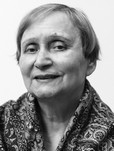Secondary schoolchildren’s physical fitness test system improvement experience
Фотографии:
ˑ:
PhD, Associate Professor M.A. Kaimin1
O.V. Kudryavtseva1
O.A. Chernyshova1
1Moscow City Pedagogical University, Moscow
Objective of the study was to provide theoretical and practical grounds for and test benefits of a new secondary schoolchildren’s physical fitness test model that offers a set of progress-facilitating physical practices. Sampled for the educational experiment were the 12-13 year-old (n-40) 6-grade pupils split up into Experimental (EG) and Reference (RG) Groups of 20 people each, including 10 males and 10 females. The primary physical fitness of the sample was tested prior to the school year by the 30m sprint, 1000m race and standing long jump tests. The new model testing educational experiment was run under the regular school physical education curriculum (by V.I. Lyakh, 2009), with the RG trained 3 times a week under the latter; and the EG trained under the same curriculum complemented by a set of physical development-facilitating practices, with the trainees’ progress tested in the training process. The model testing experiment showed benefits of the model with its reasonably combined progress-rating methods and tools complementing the regular school physical education curriculum.
Keywords: schoolchildren, physical education lesson, physical fitness, educational progress tests.
References
- Zatsiorsky M.V. Fizicheskie kachestva sportsmena: osnovy teorii i metodiki vospitaniya [Athlete's physical qualities: fundamentals of theory and methods of training]. 3rd ed.. Moscow: Sovetskiy sport publ., 2000, 200 p.
- Kudryavtseva O.V., Kaimin M.A., Chernyshova O.A., et al., Firsin S. A. [Ed.], Maskayeva T.Y. [Ed.] Osobennosti sovershenstvovaniya koordinatsionnykh sposobnostey studentov na prakticheskikh zanyatiyakh po predmetu 'Fizicheskaya kultura' [Features of improving students' coordination abilities at practical Physical Education lessons]. Fizicheskaya kultura, sport i zdorovye v vuze. Trudy I Mezhdunar. nauch.-prakt. konf. [Academic physical education, sport and health. Proc. I Intern. res.-practical. conf.]. Moscow: RUT (MIIT) publ., 2017, pp. 47-51.
- Kuznetsova Z.I. Kak vesti kontrol za dvigatelnoy podgotovlennostyu shkolnikov [Motor skills monitoring methods in schoolchildren]. Fizkultura v shkole, 2000, no. 1, pp. 45-97.
- Lyakh V.I. Kompleksnaya programma fizicheskogo vospitaniya uchashchikhsya 1–11-kh klassov [Integrated physical education curriculum for 1-11th grades]. Moscow: Prosveshchenie publ., 2009, 127 p.
- Isaak S.I., Kvashuk V.V. Opyt raboty v sub'ektakh Rossiyskoy federatsii po osushchestvleniyu monitoringa sostoyaniya fizicheskogo zdorovya detey, podrostkov i molodezhi [Experience in subjects of the Russian Federation in physical health monitoring in children, adolescents and young people]. Moscow, 2002, 144 p.



 Журнал "THEORY AND PRACTICE
Журнал "THEORY AND PRACTICE